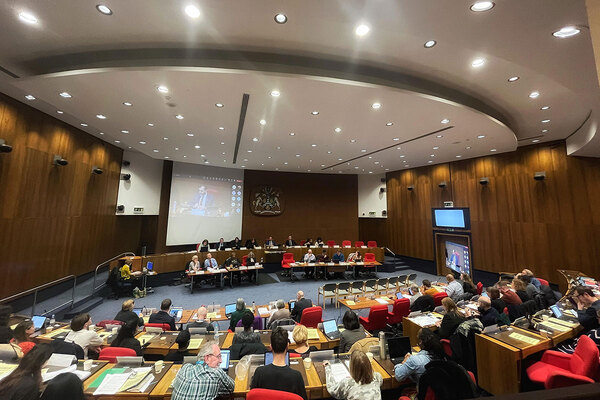You are viewing 1 of your 1 free articles
Regulator publishes first results of consumer inspections
The Regulator of Social Housing (RSH) has published the first set of regulatory judgements from its new consumer regime inspection programme, covering two social landlords.
Handing both a top C1 grade, the regulator found that Watford Community Housing Trust (WCHT) and Nottingham Community Housing Association (NCHA) were “delivering the outcomes of the new consumer standards” by identifying issues affecting tenants and putting plans in place to solve them.
The English regulator also confirmed both landlords were meeting their governance and viability requirements, and had enough financial capacity “to deal with a wide range of adverse scenarios”.
Both were graded G1 for governance and V1 for viability.
The regulator found evidence that WCHT keeps up-to-date records of the condition of its homes through physical surveys and uses complaints performance data to improve services, a process that has been scrutinised by tenants.
“WCHT identified issues with repair satisfaction levels and has made proactive, tenant-focused improvements to ensure tenants receive effective communication about its timescales for repairs,” the RSH said.
While WCHT has “well-structured and supported” tenant engagement, it acknowledged “the need to continue to focus on its communication with tenants and to capture the views from a range of tenants”.
Tina Barnard, chief executive of WCHT, said: “Our corporate strategy is guided by our customers’ priorities, and the regulator’s judgement demonstrates how hard our teams work to meet their expectations.
“The feedback from the regulator has been very positive, with strong assurance around our approach to key areas, such as ensuring our homes are safe and providing an effective repairs service.”
For NCHA, the regulator noted that it had “identified issues with the time taken to complete repairs” and “made a proactive and tenant-focused change to the repairs service to deliver better outcomes for its tenants”. The regulator also flagged the effectiveness of how NCHA handles anti-social behaviour in its neighbourhoods.
“There are clear arrangements in place through which NCHA hears from tenants. There is also evidence that feedback from tenants has directly and positively impacted service delivery,” the RSH said. “NCHA recognises the need to increase the number of tenants involved in influence and scrutiny activity and is continuing to focus on this.”
The regulator added that landlords should carry on evaluating and improving their service to tenants, even with a C1 rating.
On 1 April this year, it started its first phase of inspections for all social landlords with over 1,000 homes.
The inspections will take place over at least a four-year cycle and are part of the RSH’s expanded remit brought in by the Social Housing (Regulation) Act.
Kate Dodsworth, chief of regulatory engagement at the RSH, said: “Our inspection programme is a really important part of our new regulatory approach.
“Now we can go out and proactively seek evidence that a landlord is delivering the outcomes in our consumer standards, which will help to drive long-term improvements in landlords for the benefit of tenants.”
The regulator said it planned to publish more judgements from the first wave of inspections later in the summer.
“Critically, we’re also continuing to scrutinise the finances and governance of housing associations and other private registered providers, at a time when they are facing many competing demands on their finances,” Ms Dodsworth added.
The RSH also expects to publish more judgements based on responsive engagement, which uses information from tenants, landlords and other stakeholders.
Since April, the RSH has deemed four social landlords non-compliant with the consumer standards.
Bristol City Council, Guildford Borough Council, Octavia Housing and Sheffield City Council were each given a non-compliant C3 consumer rating.
Sign up for our regulation and legal newsletter
Already have an account? Click here to manage your newsletters
Sign up to the Regulation and Governance Conference 2024
At a time of major regulatory change, the Regulation and Governance Conference is designed to give board members and governance and risk professionals the insight they need to plan and prioritise effectively.
Join more than 250 delegates and 45 speakers to confidently navigate the change ahead and ensure you have the right governance structures and assurance frameworks to keep tenants safe and run a viable business.













